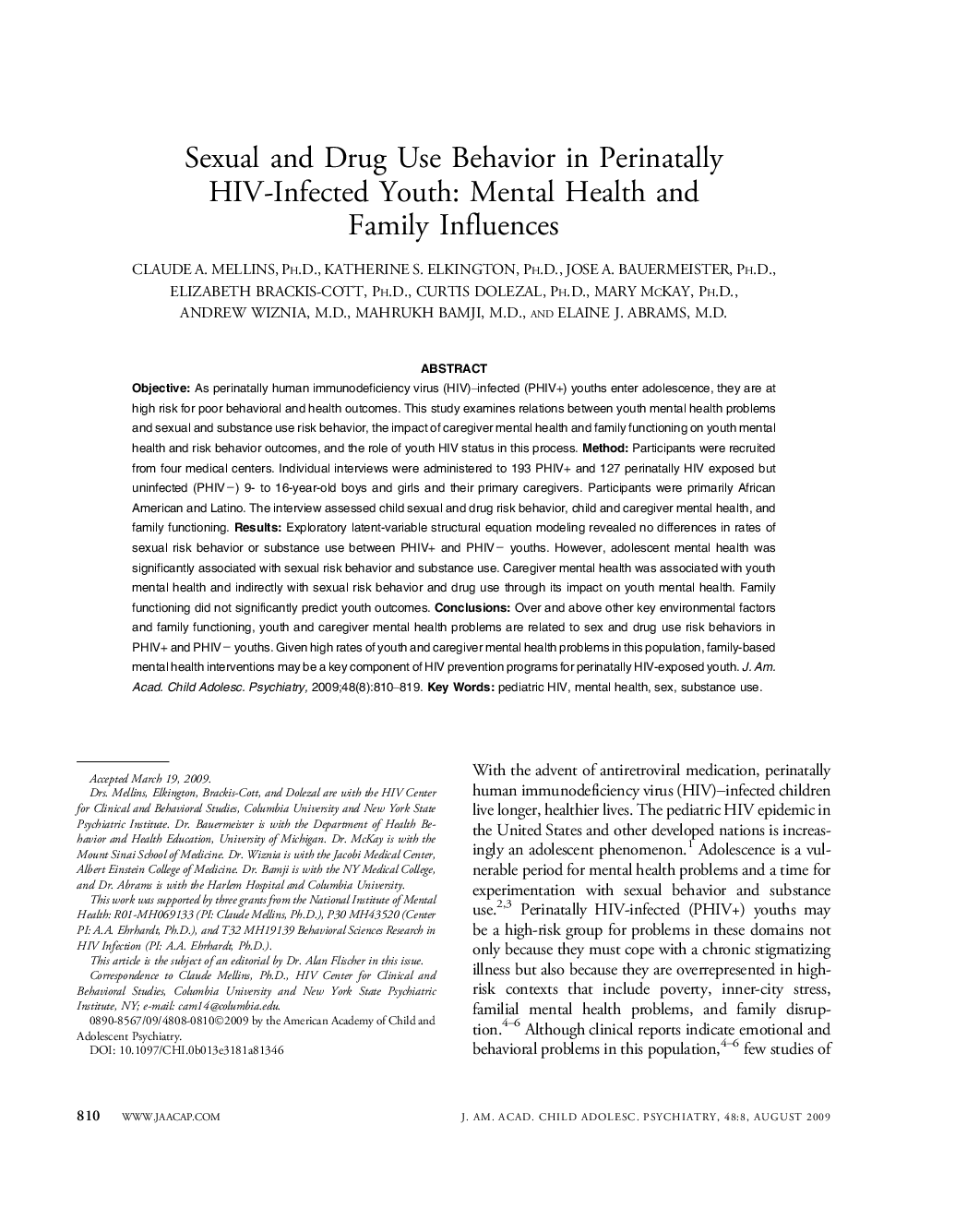| Article ID | Journal | Published Year | Pages | File Type |
|---|---|---|---|---|
| 325752 | Journal of the American Academy of Child & Adolescent Psychiatry | 2009 | 10 Pages |
ObjectiveAs perinatally human immunodeficiency virus (HIV)− infected (PHIV+) youths enter adolescence, they are at high risk for poor behavioral and health outcomes. This study examines relations between youth mental health problems and sexual and substance use risk behavior, the impact of caregiver mental health and family functioning on youth mental health and risk behavior outcomes, and the role of youth HIV status in this process.MethodParticipants were recruited from four medical centers. Individual interviews were administered to 193 PHIV+ and 127 perinatally HIV exposed but uninfected (PHIV−) 9- to 16-year-old boys and girls and their primary caregivers. Participants were primarily African American and Latino. The interview assessed child sexual and drug risk behavior, child and caregiver mental health, and family functioning.ResultsExploratory latent-variable structural equation modeling revealed no differences in rates of sexual risk behavior or substance use between PHIV+ and PHIV− youths. However, adolescent mental health was significantly associated with sexual risk behavior and substance use. Caregiver mental health was associated with youth mental health and indirectly with sexual risk behavior and drug use through its impact on youth mental health. Family functioning did not significantly predict youth outcomes.ConclusionsOver and above other key environmental factors and family functioning, youth and caregiver mental health problems are related to sex and drug use risk behaviors in PHIV+ and PHIV− youths. Given high rates of youth and caregiver mental health problems in this population, family-based mental health interventions may be a key component of HIV prevention programs for perinatally HIV− exposed youth.
